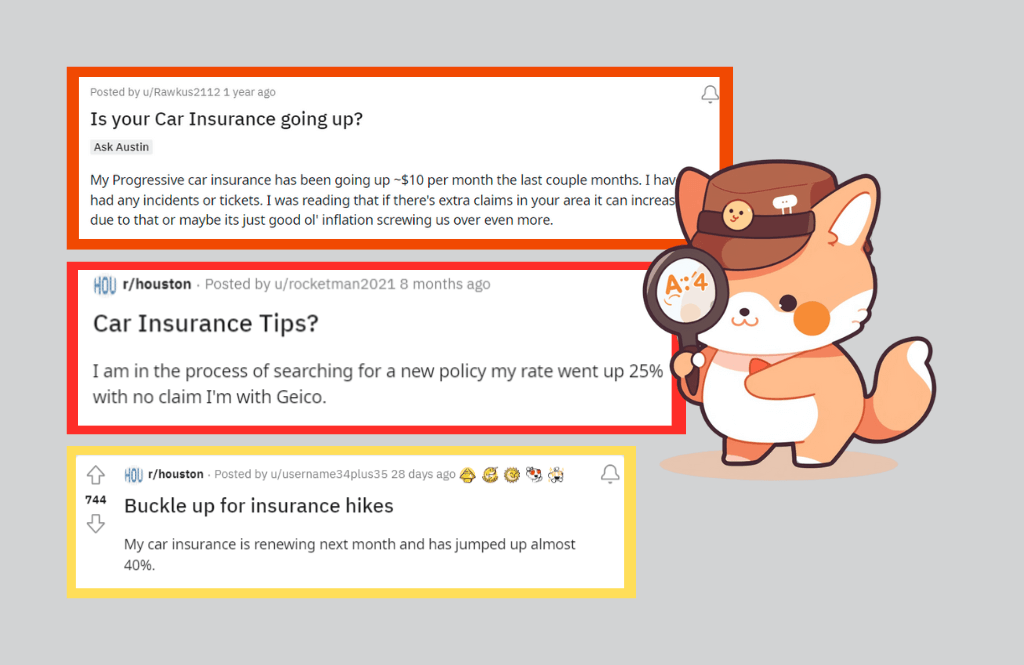Car Insurance / Types of Car Insurance / Endorsements & Riders
Reviewed by: Max Cho, Licensed Insurance Broker NPN 20377411
Types of Car Insurance: Minimum Required Insurance / Liability Coverage / Uninsured Motorist / Collision / Comprehensive / PIP / MedPay
Double checking the details of your car insurance policy is a good idea — you can sometimes lower your premiums by making sure you’re not paying for these extras if you don’t need them.
Common endorsements and riders
When an insurance company pays out on a collision, comprehensive, or underinsured motorist property damage claim, they only pay out for the current value of your car as it was delivered by the manufacturer. If you have after-market changes like a souped up trim package, expensive wheels, or a dope sound system you need to add endorsements to your policy.
An endorsement is the insurance industry’s way of saying, “You pay extra for your non-standard and expensive stuff.” These are also known as insurance riders.
Also, if you frequently carry high-value merchandise in your car (that isn’t work related), you may want endorsements for those things, too. Think high-end laptops, luxury handbags, diamond rings, a specialized bicycle, or even a rascal (those motorized carts people ride around on). Some of those things may be covered by your homeowners insurance or renters insurance, but maybe not.
Gap insurance
Cars are rapidly depreciating assets. They’re famous for dropping in value the second you drive them off the car lot. If you lease or finance your car, you still owe the full purchase price for your car when you crash it, even if its value has gone down. This difference is called “the gap.”
It’s not unusual for a lender (when you have a car loan) or a lesser (when you have a car lease) to require you to have gap insurance as part of the terms of your financial agreement, though it’s not required anywhere by law.
Even if you don’t have a loan, but you have a new (or fairly new) car, you may want to consider gap insurance if you have collision or comprehensive coverage. In any situation where your car is totaled, your insurer will only pay out the current value of the car, often much less than what you recently paid for it.
Gap insurance costs vary wildly depending on where you are and who is providing the insurance. Your lender or car manufacturer may charge one rate and each insurance company charges their own rate. Be sure to shop around for this specialized insurance and don’t forget to check if you need it after three years.
Pets
Your pets are not typically covered under your standard car insurance. In some cases pet insurance is covered through collision insurance, but often only up to $1000 in vet bills are covered. If you frequently ride around with your pet in your car you should ask your car insurance carrier what their options are, or consider getting pet insurance.
Rental cars
The subject of rental car coverage is generally confusing and often misunderstood. Always check your insurance policy to ensure you know what it says about rental cars.
On vacation
Typically, if you’re renting a car for personal reasons within the US or Canada, your regular car insurance and homeowners insurance provide the same level coverage for you and your belongings the way they do when you’re in your own car.
If you frequently rent cars you may want to make sure you have enough collision and comprehensive coverage for what might be a more expensive car than your regular ride.
After an accident
If you’re in an accident or make a comprehensive claim, most policies don’t automatically cover the cost to rent a car so you can get around while your car is in the shop. If you don’t have a lot of free cash to spend and you depend on your car for commuting, you might want to add coverage to pay for a rental car to your regular policy.
There is a caveat to this advice. You need to ask for the fine print. There are often daily or total limits for rental car coverage which may not cover all of your needs.
Ride-share drivers
Personal auto insurance doesn’t cover business activities. Typically your ride-share employer (e.g. Uber or Lyft) is required to provide insurance when you’re en route to pick up a ride or have the rider in the car. But there’s a gray area for when you’re “working” but you haven’t picked up a ride request yet. You need a special endorsement for that time period.
Roadside Assistance
Definitely double check that your car insurance policy includes roadside assistance. Many of us get free roadside assistance from other places: car dealers, AAA, and even our credit cards offer it. No reason to pay for something twice, no matter how useful it is. Likewise, if you don’t have roadside assistance from another source, find out how much an endorsement would be from your car insurance carrier.
Full coverage
You might think a term like “full coverage” means you have all of the above coverages. It does not. There’s no industry standard for what full coverage means, but people tend to think of it as upgraded liability coverage paired with collision and comprehensive coverage. But definitely not any endorsements.
Our promise:

Want to find the best insurance? Need help?
Coverage Cat shops for you. We search across dozens of major insurers and use data science to compare millions of real quotes. The result? The best combination of policies, coverage, and price for your personal financial situation.



